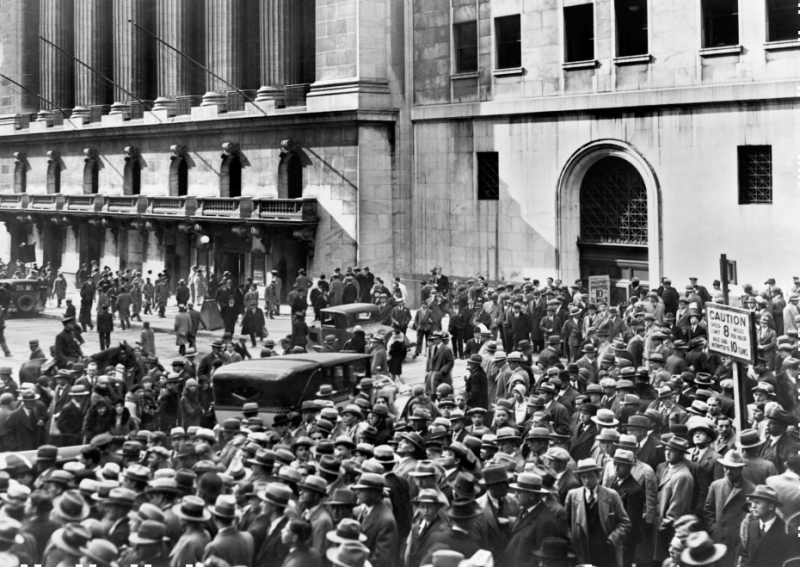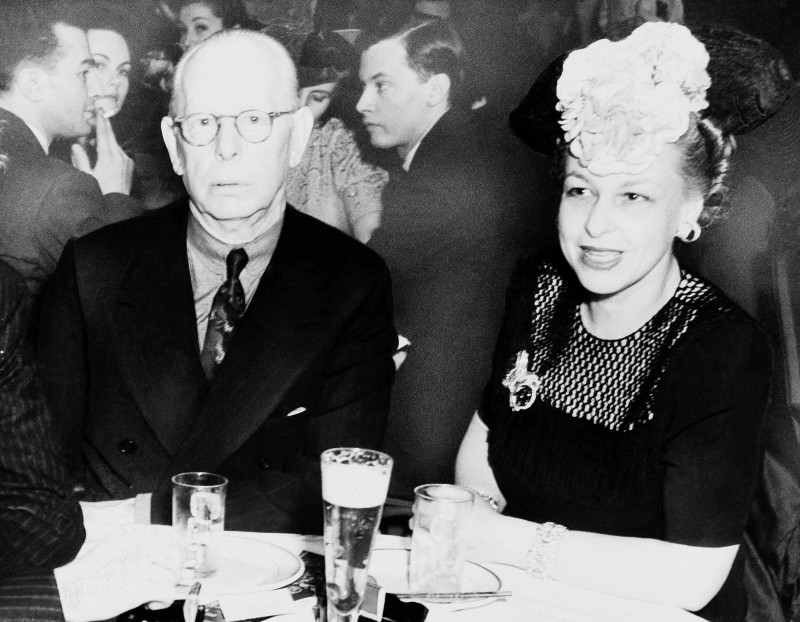Jesse Livermore was a legendary trader and speculator who made and lost several fortunes during his lifetime. He was born in 1877 in Massachusetts and began trading at the age of 14. Livermore was a self-made man who learned the ropes of trading through trial and error.
His unique insights into market psychology and price action made him one of the most successful traders of his time. Livermore is best known for his incredible trading career, which spanned several decades, and his spectacular shorting of the 1929 stock market crash.
The Early Years: Livermore's Background and Trading Beginnings

Livermore grew up in poverty, and his father's suicide, when he was a teenager, left him to fend for himself. He began trading in Boston's bucket shops, where he learned to read the tape and gauge market sentiment.
Livermore quickly became adept at trading and moved to New York City in 1899 to try his luck on Wall Street. He quickly made a fortune, but his success was short-lived. Livermore lost his money as quickly as he made it and was forced to start over.
Livermore's Trading Strategies
Tape Reading, Price Action, and Market Psychology Livermore's trading strategies were based on his insights into market psychology and price action. He was a master at reading the tape, which allowed him to gauge market sentiment and anticipate price movements.
Livermore believed that the market was driven by the emotions of traders, and he used this insight to his advantage. He was also a keen observer of market trends and would often take positions in stocks that were in the midst of a strong uptrend.
Livermore's other trading strategies included short selling and pyramiding. He was one of the first traders to short stocks, and he made a fortune by betting against the market during the Panic of 1907.
Livermore would also pyramid his positions, which meant that he would increase his position size as the market moved in his favor. This strategy allowed him to maximize his profits by winning trades.
Big Wins and Losses
Livermore's Fortunes in the Market Livermore had several big wins and losses during his trading career. He made his first fortune in 1907 when he correctly predicted the Panic of 1907 and made over $1 million in a single day.
Livermore also made a fortune shorting the market during the 1929 crash. He had been anticipating the crash for months and had amassed a large short position before the market collapsed. Livermore made over $100 million during the crash, which was an enormous sum of money at the time.
However, Livermore also had several big losses during his career. He lost a fortune during the crash of 1929, and he also lost a large amount of money during the crash of 1907. Livermore's trading style was often characterized by excessive risk-taking, leading to big wins and losses.
Shorting the 1929 Crash

How Livermore Profited from the Market Collapse Livermore is best known for his incredible shorting of the 1929 stock market crash. He had been anticipating the crash for months and had been building up a large short position in the market.
When the market finally collapsed in October 1929, Livermore made an enormous profit. He reportedly made over $100 million from his short positions, which was an incredible sum of money at the time.
Livermore's success during the 1929 crash was due in part to his keen insight into market psychology. He understood that the market was being driven by speculation and irrational exuberance, and he saw the signs of a coming crash well before most other traders did. He also had the courage to act on his convictions, even in the face of widespread optimism and bullish sentiment.
Livermore's shorting of the 1929 crash cemented his place in history as one of the greatest traders of all time. However, it also took a toll on his mental and emotional health. Despite his enormous profits, Livermore found himself adrift in the aftermath of the crash, and he struggled to find purpose and meaning in his life.
Livermore's Views on Market Speculation
Lessons for Traders Today Livermore had a unique perspective on market speculation and the role of traders in the market. He believed that the market was driven by the emotions of traders and that the key to success was to stay detached and objective.
Livermore understood that traders could be their own worst enemies, and he cautioned against getting caught up in the excitement and hype of the market.
Livermore's views on market speculation are still relevant today. Many traders still struggle with the emotional rollercoaster of the market and find it difficult to maintain objectivity and discipline. Livermore's advice to stay focused on the fundamentals and to avoid speculation and hype is just as valuable now as it was in his time.
Personal Life and Legacy

Livermore's Tragic End and Lasting Influence Despite his success in the market, Livermore's personal life was marked by tragedy and turmoil. He struggled with alcoholism and depression, and his fortunes in the market often mirrored his emotional state. Livermore's final years were marked by financial difficulties, and he eventually took his own life in 1940.
Despite his tragic end, Livermore's legacy in the world of trading and speculation endures. His insights into market psychology and price action are still studied by traders today, and his books, including "Reminiscences of a Stock Operator," are still widely read and revered. Livermore's life is a testament to the power of the market and the importance of discipline and objectivity in trading.
Livermore's Trading Principles and Strategies
- Follow the price action: Livermore believed that the price action of a stock was the most important indicator of its future direction. He emphasized the importance of watching the price movements and using them to make informed trading decisions.
- Trade with the trend: Livermore believed in trading with the trend and avoiding contrarian trades. He argued that the trend was a powerful force that could overwhelm any other factor influencing the market.
- Cut your losses quickly: Livermore was a firm believer in risk management and emphasized the importance of cutting your losses quickly. He believed that successful traders needed to be disciplined and avoid letting their emotions get in the way of good decision-making.
- Be patient and wait for the right opportunities: Livermore was known for his patience and discipline in waiting for the right trading opportunities. He emphasized the importance of avoiding impulsive trades and waiting for the market to present clear signals before making a move.
- Use technical analysis to inform your trades: Livermore was a pioneer in the use of technical analysis to inform trading decisions. He believed that charts and other technical indicators could reveal important insights into market trends and patterns
- Be flexible and adaptable: Livermore believed that successful traders needed to be able to adapt to changing market conditions and be willing to change their strategies as needed.
Overall, most traders and investors view Livermore as a trailblazer who revolutionized the world of trading and speculation. His insights into market psychology and price action were ahead of their time, and his trading strategies and techniques are still studied and applied by traders today. Livermore's legacy is a testament to the power of the market and the potential for individuals to achieve success through hard work, discipline, and a willingness to take risks.
Conclusion
Jesse Livermore's Enduring Lessons for Traders and Investors Jesse Livermore was a larger-than-life figure who–changed the world of trading and speculation forever. His insights into market psychology, price action, and risk management have stood the test of time, and they continue to shape the way traders and investors approach the market today.
Livermore's life was marked by both great success and profound tragedy. He was a self-made man who rose from humble beginnings to become one of the wealthiest and most successful traders of his time. However, his success was also marred by personal struggles, including addiction, depression, and financial difficulties.
Despite his challenges, Livermore's legacy endures. His books and trading strategies remain valuable resources for traders and investors, and his influence on the world of trading and speculation continues to be felt to this day. As traders and investors continue to navigate the ups and downs of the market, they can look to Livermore's enduring lessons on discipline, objectivity, and risk management as a guide to success.
 Peter Smith
Peter Smith

 Peter Smith
Peter Smith


